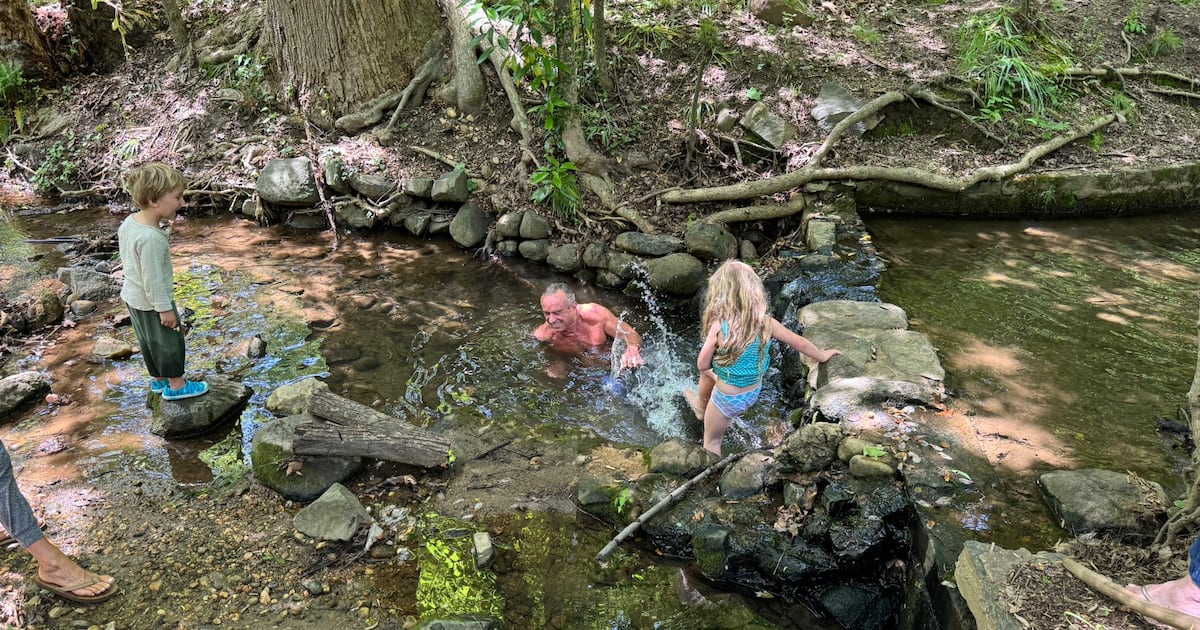RFK Jr. Defends Swimming in Polluted Creek with Grandchildren: 'It's Safer Than Tap Water'

Robert F. Kennedy Jr., a prominent voice in environmental advocacy and now a presidential hopeful, has sparked considerable controversy after defending his decision to swim in a creek he claims is contaminated with pesticides. The incident, which involved his grandchildren, occurred over the weekend and has ignited a fierce debate about environmental safety, personal risk assessment, and the credibility of Kennedy's claims.
Kennedy, known for his vocal criticism of the chemical industry and his advocacy for alternative health practices, shared videos and photos of himself and his grandchildren swimming in the creek. He asserted that the water, while visibly murky, posed less of a health risk than the chemicals potentially found in municipal tap water. “It’s safer than tap water,” he reportedly stated, further fueling the debate.
The creek in question is located on Kennedy's property in Hyde Park, New York, and is reportedly affected by agricultural runoff containing pesticides. Kennedy has long maintained that these pesticides are harmful and contribute to various health problems. His actions, while intended to highlight his concerns, have been met with widespread criticism and accusations of recklessness, particularly given the presence of children.
Critics argue that Kennedy’s behavior sets a dangerous example and trivializes the importance of adhering to public health guidelines. They question the validity of his claim that the creek water is safer than tap water, pointing out that municipal water supplies undergo rigorous testing and treatment processes to ensure their safety. Furthermore, they express concern that Kennedy’s actions could encourage others to disregard potential health risks in pursuit of a perceived environmental message.
However, Kennedy's supporters defend his actions as a demonstration of his commitment to exposing environmental hazards and challenging the status quo. They argue that his willingness to put himself and his grandchildren at perceived risk underscores the urgency of the environmental issues he champions. They believe his actions will spark a broader conversation about the chemicals present in our environment and their impact on human health.
This incident is the latest in a series of controversies surrounding Kennedy's political aspirations. His views on vaccines and other health-related topics have drawn criticism from mainstream medical professionals and public health organizations. This latest episode adds another layer of complexity to his public image and raises questions about his judgment and leadership abilities. The debate surrounding his actions is likely to continue as he campaigns for the presidency, highlighting the intersection of environmental concerns, personal responsibility, and political messaging.
The situation also highlights a broader issue: the lack of transparency and regulation surrounding agricultural runoff and its impact on local waterways. While Kennedy’s actions may be controversial, they serve as a stark reminder of the potential dangers lurking in our environment and the need for greater vigilance and accountability.






